Plum is a delicious and nutritious fruit that can provide a range of health benefits. They are rich in essential vitamins and minerals and are packed with antioxidants that can help reduce inflammation and prevent chronic diseases. Its regular consumption can also aid in digestion, boost immunity, and promote heart and bone health.
Additionally, the high fiber content of plums makes them an excellent choice for weight management and reduces the risk of chronic diseases such as diabetes and heart disease.
Introduction
Plum trees originated in the Caucasus and Asia Minor, spreading to Europe around 500 BC and distributed by the Romans. Today, they are grown globally and come in many varieties of color, size, flesh texture, and skin hue, with a complete guide available for Plum tree gardening.
Plums are considered a functional food due to their sweet taste and mild laxative effect. They provide energy in the form of simple sugars, but their high fiber, fructose, and sorbitol content prevents a rapid rise in blood sugar levels.
They comes in various colors, sizes, and flesh textures, including yellow, white, green, and red, and popular cultivars include Santa Rosa, Black Amber, Golden Japan, Red Beauty, Sungold, Damson, Yellow, Greenage, Mirabelle, and Angelino.
Botanical name (Prunus domestica) Arabic(الخوخ Alkhokh), Bangal (আলুবোখারা Aalubokhaaraa), Hindi (आलूबुखारा Aalo Bukhara), Malay (Buah plum), Urdu (آلو بخارا Aalo Bukhara)
Plum Plant
Plum is a branched, deciduous tree ranging from 10 m to 12 m cultivated and propagated since ancient times. The plant has reddish-brown, glabrous branches, unarmed or armed with few spines.
Its skin is almost always coated with a whitish-waxy layer and has reddish-to-brown bark. Leaves are alternate, deep green, elliptic to obovate, 4–10 × 2.5–5 cm.
The flower is solitary or in fascicles of 3 at the tip of branch-lets, rarely sub globes fruit varies in size but can be measured about 5-6 cm in diameter with a hard, stony, flattened pit, and in beginning, it is green when young turning to red, purple, purple-black.
Fruits are globes to oblong with a hard stony pit, varying in color and inner flesh from creamy yellow to crimson or light green. They have a sweet and tart taste with an average weight of 50-70 g.
The time for seed ripening is from July to November. The flowers are pollinated by insects. It is a self-fertile plant.
Native area
Iran, Turkey, Southern Spain, Pakistan, East European, and Caucasian mountains currently leading producers are China, Romania, and Serbia
Taste
Sweet bit of tanginess when it’s eaten unripe, ripe sweet, skin is tart making the fruit taste sweet and sour.
Temperament Group (Potency)
Ripened fruit Cold 1°, Moist 2°
Parts used
Fruit is used most commonly; Seed oil, Leaves paste, and bark decoction is used rarely
Compounds used
Both Raw fresh Fruit and Dried Fruit (called prune) are widely used. prune juice is also a popular drink. Several sweets, Jams, Jelly, Juices, squashes, sauces, Chutnees, salads, and desserts are made with plum.
Leaves Paste and leaves decoction is also administrated for oral as well as external uses as a green dye.
It is an effective ingredient in the manufacturing of mouthwashes and helps in curing bad breath and soothing sore throats. Prune kernel oil is made from the fleshy seed kernel inside the pit.
Nutritional composition
Plums (Prunus domestica) are rich in vitamins and minerals and free from Cholesterol and sodium. One serving of 165 g contains 143.93 g of water and provides 76 Calories. Other notable compounds are as:
| Sugar | 16.37 g | Amino Acids | |
| Dietary fiber | 2.3 g | Aspartic acid | 0.581 g |
| Protein | 1.15 g | Glutamic acid | 0.058 g |
| Total Fat | 0.46 g | Alanine | 0.046 g |
| Potassium | 259 mg | Proline | 0.045 g |
| Phosphorus | 26 mg | Lysine | 0.026 g |
| Vitamin c | 15.7 mg | Valine | 0.026 g |
| Magnesium | 12 mg | Leucine | 0.025 g |
| Calcium | 10 mg | Isoleucine | 0.023 g |
| Choline | 3.1 mg | Phenylalanine | 0.023 g |
| Vitamin B3 | 0.688 mg | Threonine | 0.017 g |
| Vitamin E | 0.43 mg | Arginine | 0.015 g |
| Iron | 0.28 mg | Glycine | 0.015 g |
| Vitamin B5 | 0.223 mg | Histidine | 0.015 g |
| Zinc | 0.17 mg | Tryptophan | 0.015 g |
| Tocopherol gamma | 0.13 mg | Tryptophan | 0.014 g |
| Copper | 0.094 mg | Methionine | 0.013 g |
| Manganese | 0.086 mg | Tyrosine | 0.013 g |
| Vitamin B6 | 0.048 mg | Cystine | 0.003 g |
| Vitamin B1 | 0.046 mg | Flavonoids | |
| Vitamin B2 | 0.043 mg | Epicatechin | 5.3 mg |
| Vitamin A | 28 µg | Catechin | 4.8 mg |
| Vitamin K | 10.6 µg | Epicatechin3-gallate | 1.3 mg |
| Vitamin B9 | 8 µg | Epigallocatechin 3-gallate | 0.7 mg |
| Fluoride | 3.3 µg | Epigallocatechin | 0.4 mg |
Health benefits of Plum
Plums are an important fruit in terms of their rich nutritional value and health benefits. They contain a range of essential vitamins and minerals that support overall health.
Their natural compounds also have therapeutic properties that make them useful for preventing and treating various ailments.
Plums have been used for medicinal purposes for centuries. Studies evidence them as effective Aperitive, Apocrustic, Laxative, Stomachic, Plethora, Immunity booster, Skin nourisher, and blood heat regulator.
Also, they are widely used to treat extreme thirst, nausea, and constipation. Further, their Anti-cancer, Anti-bacterial, anti-oxidants, anti-aging, and anti-muscular degradation properties are well experienced since times. Below Top health benefits of plums are described:
Promotes Heart Health
Plums are rich in antioxidants, such as phenols and anthocyanin that can help reduce inflammation and lower the risk of heart disease. Research has shown that regular consumption of plums can help lower LDL (bad) cholesterol levels, which can also reduce the risk of heart disease.
Plums also help in promoting the fluidity of blood in the arteries. This protective effect aids in the prevention of various cardiac complaints, including the development of atherosclerosis and the reduction in chances for heart attacks and strokes
Aids in Digestion
Plums are high in fiber, which can help regulate digestion and prevent constipation. They are also effective Aperitive. Plums boost digestion and increase appetite.
This effect makes plums a great addition to any diet, particularly for those looking to improve their digestive health.
To enjoy the aperitive benefits of plums, incorporate them into your diet in various ways such as adding them to salads or smoothies.
Relieve Constipation
Plums are a natural source of sorbitol, a sugar alcohol that has laxative effects. Sorbitol draws water into the large intestine, which softens the stool and promotes bowel movements.
Regular consumption of plums can help relieve constipation and promote healthy digestion.
It has been found through scientific studies that dried plums or prunes are far more effective than other remedies, such as psyllium husk, in treating digestive disorders like constipation.
Help Protect Nerves System
Plums are rich in vitamin B-6, which facilitates the transmission of nerve signals and promotes the proper functioning of the nervous system.
Additionally, this vitamin plays a vital role in the brain’s growth and development, as well as aiding in the production of hormones that have a significant impact on mood.
Moreover, plums are also rich in an amino acid known as tryptophan, which plays a crucial role in the production of a neurotransmitter called serotonin.
This particular chemical has been shown to play a pivotal role in regulating sleep, appetite, and concentration, among other bodily functions.
In essence, the consumption of plums has a multitude of benefits for one’s physical and mental health, making it a wise choice for individuals looking to maintain their overall well-being
Boosts Immunity
Vitamin C, present in plums, strengthens the body’s immune defense and promotes resistance against infections and inflammations.
Research shows that oriental plums contain immune-stimulatory constituents that encourage the body to produce nitric oxide, inhibit the metastasis of tumor cells, and prevent various diseases.
Regular consumption of plums can help reduce the risk of infections and diseases.
Helps Protect Eyesight
Plum, a fruit rich in vitamin A and beta-carotene have been identified as a potential aid in maintaining optimal visual health and fending off age-related macular degeneration.
The carotenoids lutein and zeaxanthin, found within plum, are located within the macular tissues of the retina and offer significant defense against detrimental ultraviolet radiation.
Regulate Blood Sugar Levels
Plums have a low glycemic index, which means they release sugar into the bloodstream slowly, preventing sudden spikes in blood sugar levels.
This can be beneficial for people with diabetes or those at risk of developing the condition.
Recent scientific investigations have demonstrated that the ingestion of plum-derived extracts yields fruitful results in mitigating the concentration of blood glucose and triglycerides within the human corpus.
This feat is attributed to the flavonoids inherent in plums, which exert a defensive influence against insulin resistance and augment insulin sensitivity within the individual.
Effective Anti-aging Agent
Plum fruit is rich in antioxidants, which can help to combat free radicals that cause cellular damage and contribute to the aging process.
Additionally, they contains vitamins A and C, which are essential for maintaining healthy skin.
Vitamin A helps to promote cell turnover, which can reduce the appearance of fine lines and wrinkles, while vitamin C helps to boost collagen production, which can improve skin elasticity and firmness.
Plum fruit also contains anthocyanins, which are pigments that give the fruit its deep purple color. Anthocyanins have been shown to have anti-inflammatory properties, which can help to reduce the appearance of redness and irritation in the skin.
They are rich in antioxidants such as Vitamin E and beta-carotene which protect against free radicals and fight signs of aging skin, while also reducing inflammation and promoting skin elasticity.
Their regular consumption contributes to maintaining a healthy, glowing, and youthful complexion. it also can mitigate the appearance of blemishes and fine lines because of the presence of anti-aging elements.
Their extracts are frequently employed in diverse skincare formulations, such as facial cleansers and masks. It is also evident that regular consumption of plums can also help reduce the risk of skin damage caused by UV radiation.
Reduces Cancer Risk
Plums are rich in antioxidants, which can help protect the body from damage caused by free radicals. Free radicals are unstable molecules that can cause cellular damage and lead to the development of cancer.
Research has shown that regular consumption of plums helps to reduce the risk of several types of cancer, including breast, lung, and colon cancer.
The research has shown that epicatechin, a component found in them, prevents the growth and proliferation of cancer cells and promotes apoptosis in human hepatocellular carcinoma, or liver cancer.
Aids in Weight Management
Consuming plums can facilitate natural weight loss as they assist in eliminating toxins and preventing constipation. They are abundant in fiber and antioxidants, which support healthy digestion and metabolism. Furthermore, the presence of citric acid in plums is beneficial in preventing fatigue and muscle cramps.
These fruits also enhance liver and gastrointestinal functions, making them a great addition to your diet. Their regular consumption of raw or in the form of juice can aid in the easy shedding of excess weight.
Studies indicate that the consumption of plums aids in combating metabolic syndrome through the presence of bioactive compounds.
The flavonoids and phenolic components, namely anthocyanins, chlorogenic acids, quercetin, and catechins found in plums, elicit anti-inflammatory and anti-obesity effects on various somatic cells.
Good for Bone Health
They are a good source of vitamin K, a nutrient that is essential for bone health. Vitamin K helps regulate calcium absorption and can help prevent osteoporosis and other bone-related disorders.
Improve Cognitive Health
Studies have demonstrated that the flavonoids present in plum nectar are efficacious in endowing safeguard against cognitive deterioration caused by senescence.
The advantageous phytonutrients in plums aid in curtailing inflammation in neural regions thereby fostering amelioration in the cognitive domains of learning and memory.
Their routine intake also forestalls age-associated neurodegenerative illnesses such as Alzheimer’s and Parkinson’s diseases.
Eliminate Anxiety
Regular consumption of plums has been proven to have a positive impact on the reduction of anxiety. Research has revealed that the anxiolytic effects and antioxidant properties of chlorogenic acids found in plums can aid in the treatment of anxiety-related behaviors and the mitigation of harm caused by oxidative stress.
Beneficial in Pregnancy
Plums are a highly beneficial fruit for pregnant women, boasting a plethora of essential vitamins and minerals crucial for proper eye-sight, bone and tissue development, and cellular health for both the mother and the growing fetus.
Their inclusion as part of a balanced diet can assist in fighting against various infections and promoting overall health. Moreover, their fiber content is an effective means of preventing constipation and promoting healthy digestion.
However, caution must be exercised when it comes to commercially available plum juices, as they often contain excessive amounts of sugar that can be harmful to one’s health.
Removes Dandruff
The plum’s vitamin C content has the potential to alleviate dandruff, a scalp condition that causes follicle blockage and flakiness. Failure to address this issue promptly can result in follicle damage and impede hair growth.
They can also help to combat scalp bacteria and alleviate skin irritation, effectively addressing dandruff. This will eliminate follicular waste and stimulate new hair growth.
Usage in Folk Medicine
Plums have been used in folk Medicine for centuries to treat a range of ailments, including digestive problems, coughs, and fevers. In TCM, they are believed to have cooling properties and are used to balance excess heat in the body.
Conclusion:
In conclusion, plums are a delicious and nutritious fruit that offer a range of health benefits. From boosting digestion and immunity to preventing chronic diseases, they have been used for medicinal purposes for centuries. Incorporating plums into your diet is an easy and tasty way to improve your overall health and well-being. So, next time you’re looking for a healthy snack or a flavorful addition to your meal, reach for a plum and enjoy all its nutritional and medicinal benefits.
Human studies and research continues to explore more unacquainted, rest the creator knows well about his creation
FAQs
Can plums help lower cholesterol levels?
Yes, their regular consumption can help lower LDL (bad) cholesterol levels and reduce the risk of heart disease.
Are plums good for digestion?
Yes, they are high in fiber and sorbitol, which can help regulate digestion and promote healthy bowel movements.
How can I incorporate plums into my diet?
They can be eaten fresh, dried, or canned, and can be used in a variety of dishes, including salads, sauces, and desserts.
Can plums help prevent cancer?
Yes, they are rich in antioxidants that can help protect the body from cellular damage and reduce the risk of several types of cancer.
References:
https://npgsweb.ars-grin.gov/gringlobal/taxon/taxonomydetail?id=29888

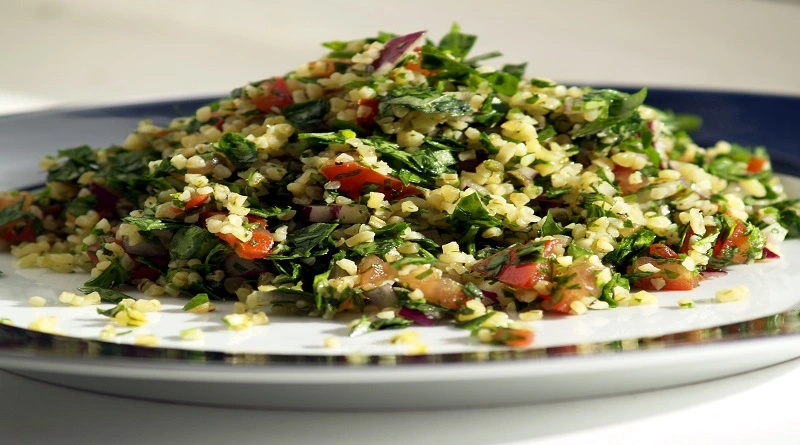



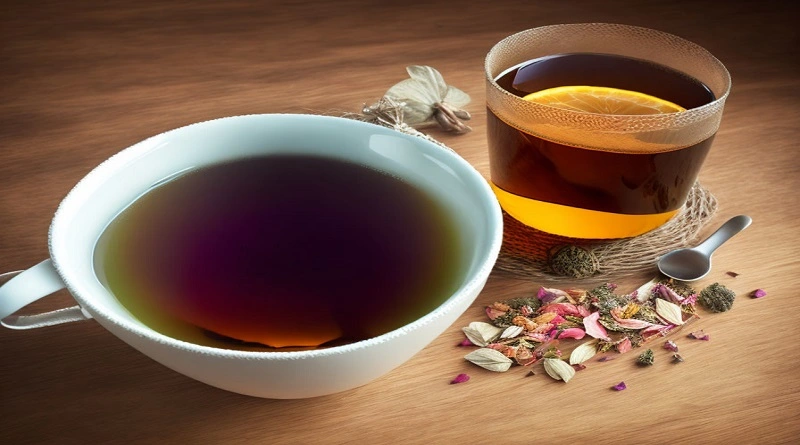


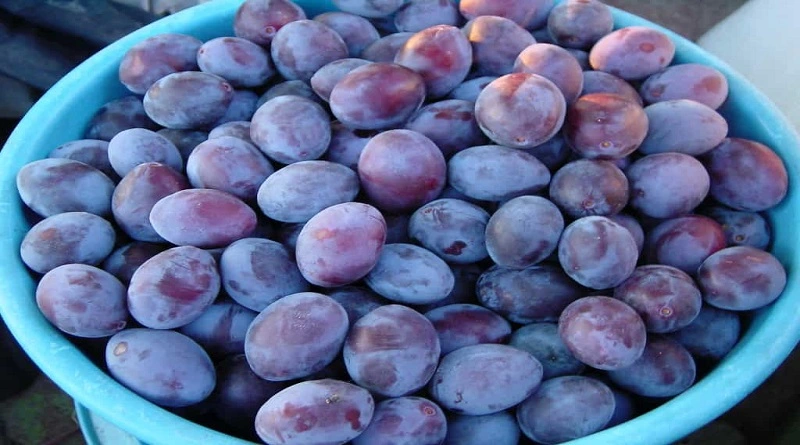

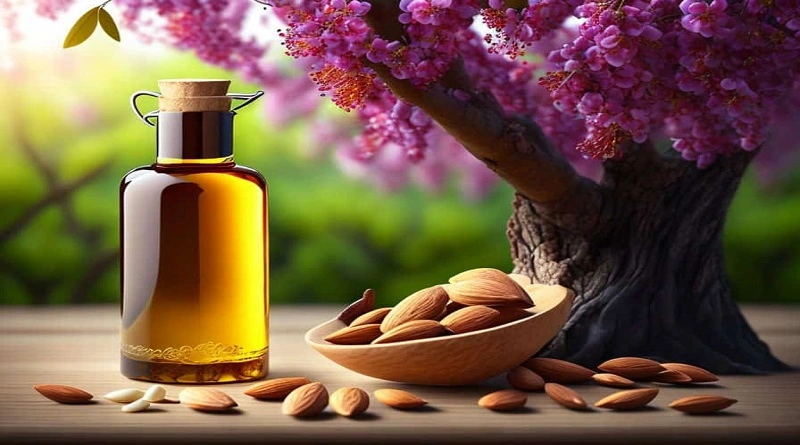
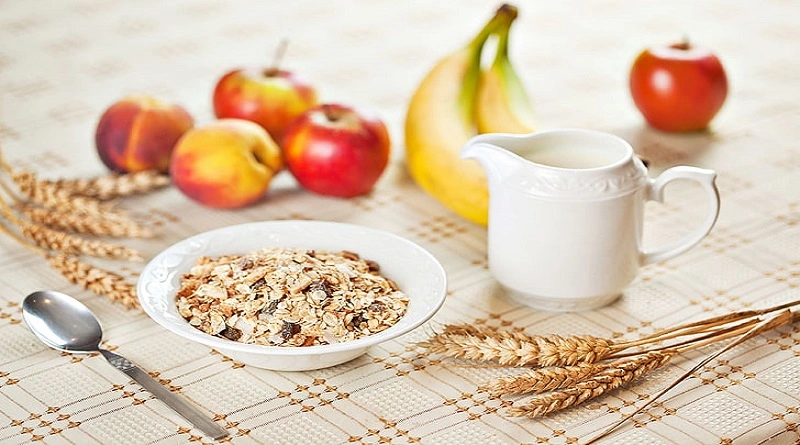
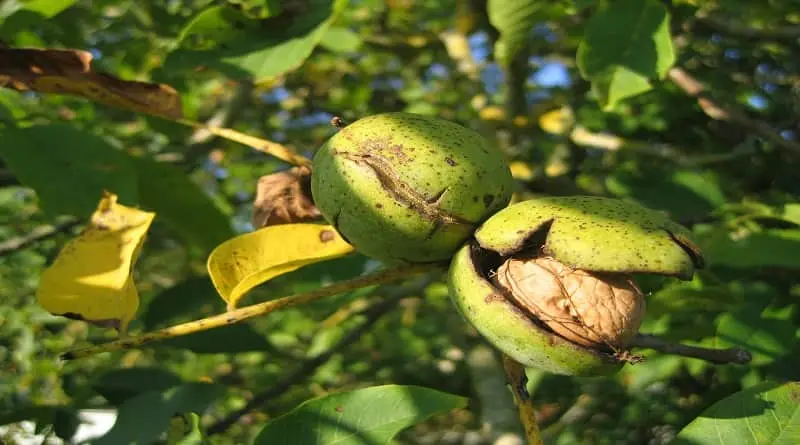
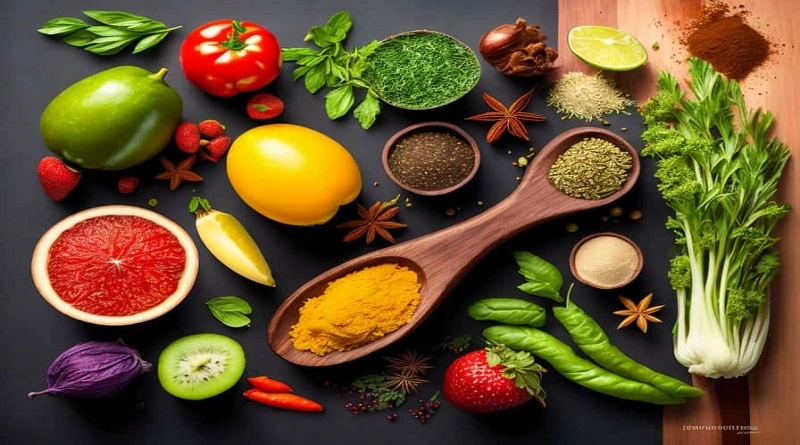

Id like to thank you for the efforts you have put in penning this site. Im hoping to see the same high-grade blog posts by you in the future as well. In fact, your creative writing abilities has inspired me to get my own site now 😉
Good post. I learn something totally new and challenging on blogs I stumbleupon on a daily basis. Its always useful to read content from other authors and practice something from their websites.
Thank you so much for leaving such a kind and encouraging comment on my blog post. It truly means a lot to me to know that my efforts in creating content are appreciated.
I will continue striving for excellence in my writing and hope to deliver more high-grade blog posts. Thank you again for your motivation, and support and for being a valued reader of my site.
Very nice post. I just stumbled upon your blog and wanted to say that I’ve really enjoyed browsing your blog posts. In any case I’ll be subscribing to your feed and I hope you write again soon!
its pleasure for me that my article helped you. sure I am doing my best to present nice articles
Very nice post. I just stumbled upon your blog and wanted to say that I’ve really enjoyed browsing your blog posts. In any case I’ll be subscribing to your feed and I hope you write again soon!
Thank you for taking the time to leave such a positive comment on my blog. I’m thrilled to hear that you enjoyed reading my posts and that they resonated with you. Your kind words are truly encouraging.
I appreciate your decision to subscribe to my feed, and I’m excited to have you as part of the community. Rest assured, I’ll continue writing and sharing more content in the future. I hope you find value and enjoyment in the upcoming posts as well.
If you have any specific topics or suggestions you’d like to see covered on the blog, please feel free to let me know. Your feedback is always valuable to me.
Once again, thank you for your support and for being a reader of my blog. I look forward to engaging with you further in the future.